Filip Dujardin, Untitled, from the Fictions Series.
Seamless: Digital Collage and Dirty Realism in Contemporary Architecture
Jesús Vassallo
Mar 23, 2017
(6pm)
Talk
Please RSVP
On the occasion of our current exhibition, Spaces without drama, Jesús Vassallo discusses his recent research and publication, Seamless: Digital Collage and Dirty Realism in Contemporary Architecture (Park Books, 2016), exploring the realist drive underlying contemporary collaborations between artists and architects in Central Europe.
Jesús Vassallo is a Spanish architect and writer, and currently an assistant professor at Rice University in Houston, Texas. His work interrogates the problem of realism in architecture through the production of design and scholarship. He is the author of Seamless: Digital Collage and Dirty Realism in Contemporary Architecture and is currently finishing a second manuscript titled Epics in the Everyday. His articles have been published internationally in magazines such as AA Files, 2G, Log, Harvard Design Magazine, Future Anterior, Domus, Arquitectura Viva, and Arkitektur DK; Vassallo also serves as editor for Circo magazine.
Related Graham Foundation supported projects:
2016 Individual Research Grant to Jesús Vassallo for Seamless: Digital Collage and Dirty Realism in Contemporary Architecture
For more information on the exhibition, Spaces without drama or surface is an illusion, but so is depth , click here.

Sergei Tcherepnin
Lampo Performance Series
Mar 11, 2017
(8pm)
Performance
Please RSVP
Sergei Tcherepnin premieres a new composition for various electronics played through an ensemble of cardboard and aluminum speakers. This work is an expansion of earlier works of his such as Giving Rein, in which he used 38 channels to articulate a spatial sonic architecture that was constantly in flux.
Sergei Tcherepnin (b.1981, Boston, Mass.) is an artist operating at the intersections of sound, sculpture, and theater. Attaching synthesizers, computers and amplifiers to small surface transducers—devices that convert electrical signals into vibrations—he orchestrates complex multi-channel compositions in which objects are transformed into speakers. Often invoking queer, hybridized characters such as the Listening Cactus, the Maize Mantis, or the figure of the Pied Piper, Tcherepnin’s scenarios cultivate play between things and bodies, compelling the audience to develop a “score” for handling these animated objects. These interactions suggest new possibilities for intimacy with sound, where “listening” involves a more expansive state of activity: listening by touching, listening by opening, listening by feeling, listening by harnessing, or listening by walking.
His recent performances and installations include the Museum der Moderne, Salzburg; Overduin & Co., Los Angeles; Whitney Biennial, Whitney Museum of American Art, New York; Roulette, New York; the Museum of Modern Art, New York; Pavilion of Georgia at the 55th Venice Biennale; Murray Guy, NY; the Kitchen, NY; Yvon Lambert, Paris; Karma International, Zurich; Solomon R. Guggenheim Museum, NY; and the 30th São Paulo Biennial, Brazil. He is a recipient of 2014 Villa Romana Fellowship in Florence, Italy.
Artist Talk: Friday, March 10, 6pm. Lampo Annex, Monadnock Building, 53 W. Jackson Blvd. #1656.
Sergei Tcherepnin discusses the influence of late artist Maryanne Amacher on his work. He will describe his recent project at the Stedelijk Museum as a part of Supreme Connections, a collective of artists, musicians and researchers devoted to interpreting and presenting the ideas of Amacher. Tcherepnin also will consider Amacher’s notion of “sound characters” and explain how her extensive research on sound and the body relates to his exhibitions Subharmonic Lick Thicket, Ear Tone Box and Games as well as his large-scale performance piece Maize Mantis.
This performance is presented in partnership with Lampo. Founded in 1997, Lampo is a non-profit organization for experimental music and intermedia projects.

'Photographs of Trinidad and Tobago (1964)’ by Daphne Oram & ‘In the Background’ by Céline Condorelli & James Langdon in Bricks from the Kiln #2
Bricks from the Kiln #2
Andrew Lister and Matthew Stuart
Mar 04, 2017
(3pm)
Book Launch
Please RSVP
Join the Graham Foundation Bookshop for the launch of Bricks from the Kiln #2, a publication by Andrew Lister and Matthew Stuart. Taking place as part of a Saturday series of Graham Foundation bookshop events, this launch will feature a reading from Bricks from the Kiln #2 and discussion between Lister and Chicago typographer Pouya Ahmadi. The launch will be followed by a reception in the bookshop with drinks and copies of Bricks from the Kiln #1 and #2 for sale.
Bricks from the Kiln borrows its title from the glossary notes of Ret Marut's Der Ziegelbrenner, which was the 'size, shape and colour of a brick,' and ran for 13 issues between 1917 and 1921. Like the first issue, Bricks from the Kiln #2 is still ‘tentative, incomplete and inconsistent’ and still ‘in flux and liable to crack.’
Bricks from the Kiln #2 presents its material ‘reordered, recontextualised and reclassified, freed from the archive and fragmented on these pages,’ and includes contributions from Ryan Gerald Nelson, James Bulley, Daphne Oram, Céline Condorelli, James Langdon, Scandinavian Institute for Computational Vandalism, Mark Simmonds, David Whelan, Ron Hunt and Rose Gridneff. Highlights from this issue include pieces on the sound-film work of Daphne Oram and Geoffrey Jones; monuments to Kazimir Malevich, Rosa Luxemburg and Walter Benjamin; the relocation of a defunct bookshop from Amsterdam to Epsom; a conversation on the politics of display and ‘Agatha Christie smoking Asger Jorn’s cigar.’
Bricks from the Kiln #2 is bound with ‘signature-wrap’ prints bookending each eight-page section. Each copy comes complete with an inserted index and afterword in a screen-printed PVC dust jacket.
Bricks from the Kiln is edited and designed by Andrew Lister and Matthew Stuart between Chicago and London.
Pouya Ahmadi is a Chicago-based typographer and educator. He is an Assistant Professor of Graphic Design at the University of Illinois at Chicago and editorial board member of Neshan magazine.

Lasse Marhaug
Lampo Performance Series
Feb 18, 2017
(8pm)
Performance
Please RSVP
Norwegian artist Lasse Marhaug return to Chicago with two new, eight-channel compositions commissioned by Lampo. Marhaug premieres "Saltfjorden Vapor"—constructed from a mix of location recordings from Saltstraumen (one of the strongest tidal currents in the world), acoustic objects, voice, ARP Odyssey synthesizer and optical sound from 16mm film projectors.
In "The First Eight," Marhaug combines his electronics with recorded acoustic material from musicians Stine Janvin Motland (voice), Martin Taxt (tuba), and the trio Sult (percussion, acoustic guitar and double bass). This performance is the U.S. premiere of the work, which was originally composed at the request of INA-GRM for the Présences and L’Audible festivals in Paris in the spring of 2016.
Lasse Marhaug (b.1974, Bodø, Norway) has been one of the primary forces and most prolific figures in the Norwegian noise scene since the early 1990s. He has contributed to more than 300 releases and toured extensively throughout Europe, North America and Asia. Collaborators include Merzbow, Sunn O))), Maja Ratkje, Okkyung Lee, Kommissar Hjuler und Frau, The Skull Defekts and John Wiese, and Chicagoans Kevin Drumm and Ken Vandermark. While Marhaug is perhaps most known for his work in noise, he also ventures into improvisation, jazz, rock and extreme metal. He has contributed music to theater, film and video as well. Since 2011 he has published his fanzine Personal Best, in which he interviews his favorite artists. He also works as a producer and promoter, and runs the record labels TWR Tapes, Pica Disk and Prisma Records. Marhaug lives in Bodø, a city above the Arctic Circle in Norway.
This performance is presented in partnership with Lampo. Founded in 1997, Lampo is a non-profit organization for experimental music and intermedia projects. Support provided to Lampo by mediaThe foundation inc.
Image courtesy of Thor Egil Leirtro.
The Graham would like to thank Perrier for supporting our public programs.

Aldo Rossi, Teatrino Scientifico, Scena con cabine, 1978. Courtesy of the Fondazione Rossi.
Opening Reception: Spaces without drama or surface is an illusion, but so is depth
Feb 16, 2017
(6pm)
Opening Reception
Please RSVP
Please join us for a reception and talk by curators Ruth Estévez and Wonne Ickx to celebrate the opening of our new exhibition, Spaces without drama or surface is an illusion, but so is depth.
Thursday, February 16, 2017
6pm: Talk by Ruth Estévez and Wonne Ickx
7-8pm: Opening Reception
LIGA–Space for Architecture, is an independent initiative founded in Mexico City that promotes contemporary architecture through exhibitions, conferences, publications, and events, with a focus on Latin America. As a curatorial platform LIGA strives to expand the architectural discipline as a discursive practice, to experiment with exhibition and presentation formats, and to establish connections with other disciplines. LIGA was co-founded by Carlos Bedoya, Ruth Estévez, Wonne Ickx, Victor Jaime, and Abel Perles in 2011. Isabel Martínez Abascal joined LIGA as program director in in 2015.
Ruth Estévez (b. 1977. Bilbao, Spain) is a writer, curator and set designer based in Los Angeles, where she is currently the director and curator of REDCAT/CalArts Gallery. Between 2007 and 2011, Estévez served as the chief curator at the Museo de Arte Carrillo Gil, Mexico City, where she organized exhibitions of Mark Manders, Fernando Ortega, Guy Ben-Ner, among others. In 2011 Estévez cofounded LIGA, Space for Architecture in Mexico City, an exhibition platform dedicated to experimentation in the field of architecture and urbanism. Her current work at REDCAT has brought to Los Angeles artists like Javier Téllez, Pablo Bronstein, Allora & Calzadilla, Pedro Barateiro, and Quinn Latimer, as well as such group exhibitions as Agency. Assembly: Before and After the Split second recorded (2015) and Small Museum for the American Metaphor (2014) co-curated with Kersten Geers. She has written for numerous exhibition 3 catalogues and art publications and has independently organized exhibitions in Spain, France, Belgium, and the United States, as well as in Mexico.
Wonne Ickx founded PRODUCTORA in Mexico City, together with Abel Perles, Carlos Bedoya, and Victor Jaime in 2006. PRODUCTORA was awarded the Architectural League Prize in 2007 and the Emerging Voices Competition in 2013. In 2016 the studio received the Mies Crown Hall Americas Prize for Emerging Architects from the Illinois Institute of Technology (IIT) College of Architecture. Among the office’s many publications, the monographs published by Arquine in 2010 and 2G in 2014 summarize the work over this intense period of production. Ickx teaches at several universities in Mexico City, as well as the University of California Los Angeles (UCLA), IIT, and Harvard. He is one of the founding directors of LIGA, Space for Architecture.
The Graham would like to thank Perrier for supporting our public programs.
For more information on the exhibition, Spaces without drama or surface is an illusion, but so is depth , click here.

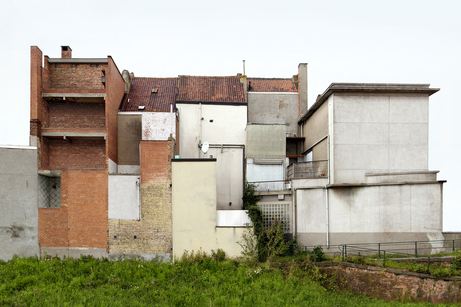
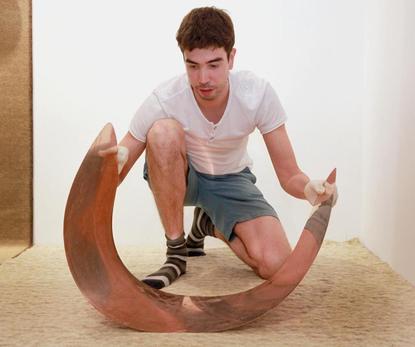
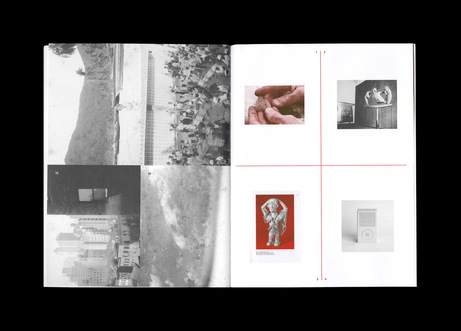
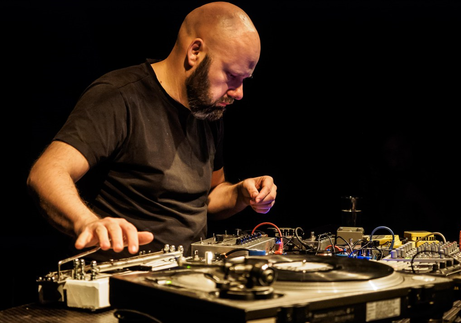
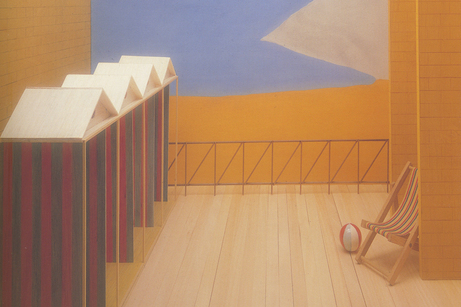
 PREVIOUS POSTS
PREVIOUS POSTS